
Inventions are rarely devised by one person or appear at a precise date. Often there are several individuals working to the same end, at different times and unaware of the others. Think of the motor car, telephone, personal computer or the cinema. Eventually one comes out ahead and is hailed as the 'inventor'.
Coming up with a date when photography was 'invented' is a fraught exercise: 1727, 1802, 1826, 1834 and 1837, are all potential candidates. But like so many inventions photography has its origins in the work of many people working from the late 18th century and, of course, it depends on how one defines photography.
If you took a poll then 1839 would be the date that most people would say that photography was 'invented'.
That year was the culmination of several decades of work and it saw the announcement of two separate photographic processes: Frenchman Louis Daguerre's daguerreotype and Britain's Henry Talbot's photogenic drawing process.
Of these, Daguerre's was by far the most successful commercially, leading to the growth of portrait studios as it, arguably, produced the better image. Daguerre's process made a single image, Talbot's produced a negative from which multiple positive prints could be made. It was Talbot's process, which he patented as the Calotype in 1841, which formed the basis of photography, with later improvements, until the advent of digital photography from the 1990s.
Joseph Nicéphore Niépce
AP reader Jose Casas-Finet from the United States wrote to the editor recently suggesting that AP commemorate the 200th anniversary of photography this month. He suggested that 16 September 1824 was the first evidence of a photograph from life being made in a letter from Joseph Nicéphore Niépce to his older brother, Claude.
Niépce has a better claim than most for the invention of photography and his experiments in the 1820s helped Daguerre in his invention of the daguerreotype.
This story is from the {{IssueName}} edition of {{MagazineName}}.
Start your 7-day Magzter GOLD free trial to access thousands of curated premium stories, and 9,000+ magazines and newspapers.
Already a subscriber ? Sign In
This story is from the {{IssueName}} edition of {{MagazineName}}.
Start your 7-day Magzter GOLD free trial to access thousands of curated premium stories, and 9,000+ magazines and newspapers.
Already a subscriber? Sign In
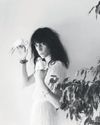
Calling The Shots: A Queer History of Photography
Offering an unprecedented view of photographic history through a queer lens, this is a wonderful and powerful book, says
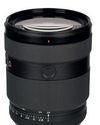
Large-aperture standard zoom, too
SONY has also revealed a new premium standard zoom, the FE 28-70mm F2 GM.

Super-fast, high-res Sony Alpha Ai II
SONY has announced its new professional full-frame flagship camera, the Alpha A1 II.
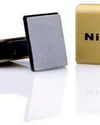
39 awesome accessories
Our round-up of the best accessories we've used and reviewed this year, along with some old favourites. There's something here for every budget, starting from just £7, including tripods, bags, filters and much more

Such a thing as society
This autumn sees the launch of a major new book and exhibition devoted to examining the multiplicities of photography during 1980s Britain. Peter Dench finds out more

Join Club
The sociable Canvey Island Photographic Club is keen to grow its in-person meet ups

Capturing flight
Winners and finalists of Bird Photographer of the Year share their tips for success with Hollie Latham Hucker
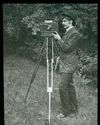
140 years of change
AP has become the world’s oldest surviving consumer photo magazine because we have moved with the times, says Nigel Atherton

Preserving history in platinum
A deep dive into the meticulous art of platinum printing, and the collaboration between the Royal Geographical Society and Salto Ulbeek. Mike Crawford explores how they brought historical photographs to life with enduring beauty and precision
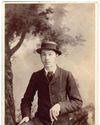
Life in the past lane
What was life like for an amateur photographer in 1884? John Wade takes a trip back in time